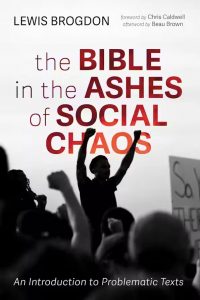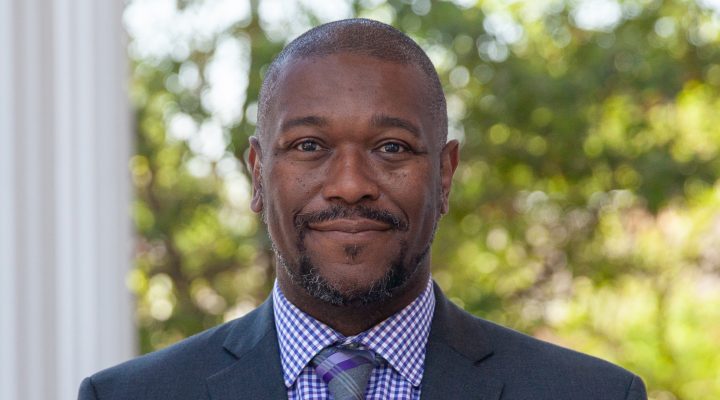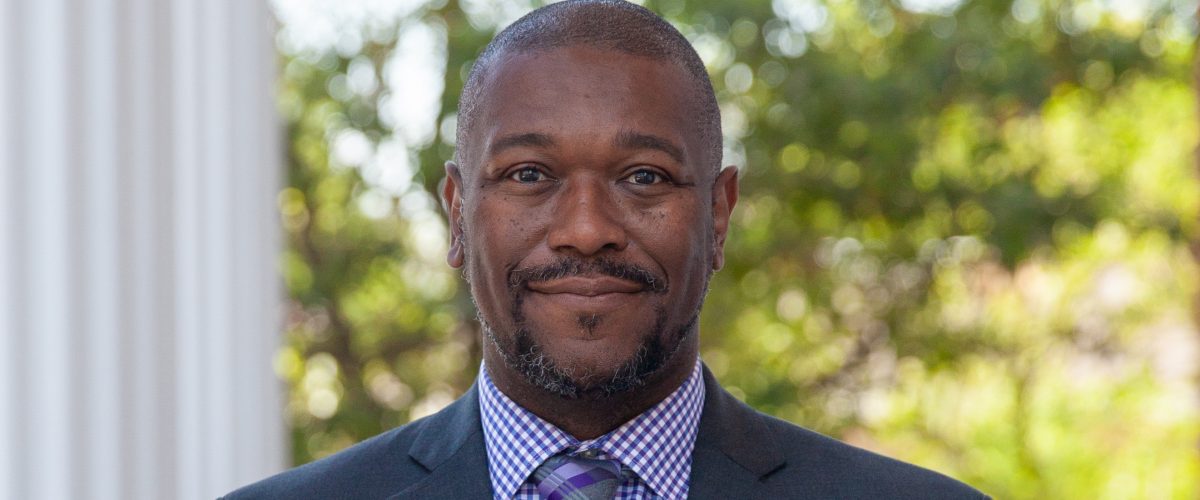While Lewis Brogdon doesn’t describe the Bible as fragile, he wants to help people interpret its content with care.
That is one of the reasons Brogdon, associate professor preaching and Black church studies at Baptist Seminary of Kentucky, wrote a book titled, The Bible in the Ashes of Social Chaos: An Introduction to Problematic Texts. It was released earlier this year by Cascade Books, an imprint of Wipf and Stock Books in Eugene, Ore.
“I wanted to encourage people to ask questions about things they read in the Bible,” said Brogdon, who holds a doctorate in New Testament studies. “Too many churches shut down questioning.”
 Some people are reluctant to raise questions because they fear they will disparage the Bible or the Christian faith, he added. “The Bible can stand on its own merits. Part of loving God is loving God not just with our hearts, but also with our minds, and so intellectual honesty can be held in tension with the respect for the Bible.”
Some people are reluctant to raise questions because they fear they will disparage the Bible or the Christian faith, he added. “The Bible can stand on its own merits. Part of loving God is loving God not just with our hearts, but also with our minds, and so intellectual honesty can be held in tension with the respect for the Bible.”
Earlier in his career, while teaching introductory Bible courses to college freshmen, Brogdon encountered students who struggled with biblical texts that support slavery and assign women to secondary status in church and society. He also heard these concerns while serving as a pastor. Many people in the pews, particularly those in conservative congregations, are afraid to raise questions, he observed.
Brogdon encourages Bible readers to consider “problematic” texts alongside “the core message of the Bible.”
The problem of “unhealthy subjectivity” can be minimized when core beliefs are developed within the context of faith communities. Such convictions provide a “big picture of who God is, of the gospel of Jesus Christ,” he said.
“Churches have done this for hundreds of years in creeds, confessions and more recently statements of faith,” Brogdon explained. “That is their version of the Bible’s core message.
“Discerning the Bible’s core message is a way to hold on to the whole of the Bible in a way where you can be intellectually honest about texts that are problematic and non-normative,” he continued. “But you’re not being irreverent, you’re not trying to discard it, but you’re actually thinking critically and faithfully about what to do with this text.”
Brogdon warned against “spiritualizing texts” that present difficulty. He said one example of this practice is trying to apply passages dealing with slavery in Colossians and Ephesians to contemporary employer/employee relationships. This interpretative leap is “not an appropriate application of slavery both in antiquity as well as in modern forms of slavery.”
“Slavery is fundamentally immoral and exploitive, and it does not represent God’s kingdom and God’s intention for humanity.”
“Slavery is fundamentally immoral and exploitive, and it does not represent God’s kingdom and God’s intention for humanity,” he declared. “God doesn’t want anybody to be a slave.”
The biblical writers were not always able to separate themselves fully from the context in which they wrote, Brogdon noted. “So that’s why it is important to interpret the text in context, to really understand what’s the sort of social milieu that gives meaning to what’s going on and what’s precipitating these writings.”
Such an approach, he said, helps avoid temptations to “sanctify social orders” that are oppressive and anti-gospel.
“Some texts are in the Bible as sober reminders of religion’s dark side and mistakes we should not repeat today,” he said.
Brogdon sees a decline in Bible reading among Christians of every theological stripe, a trend he finds alarming. “I believe the Bible is foundational and that God continually calls us back to Scripture.”
“I am a product of the Black church, and hearing Black preachers engage with the Bible in sermons has been one of the highlights of my life,” he said. “But I’m really seeing that diminishing in the church. To me, it’s no surprise to see how weak our churches are, when you really look at our level of engagement with the Bible.”
For Brogdon, that engagement includes dealing honestly with difficult texts. Too many people have been silenced when they have raised sincere questions and have left the church discouraged, he said. “I’m writing to these people. They love God, and they love the word of God, and they are trying to make sense of some things that are in the Bible.”


